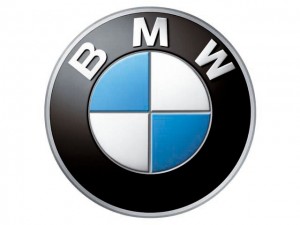 Adding to the growing number of automobile models being recalled for defective airbags, BMW announced a recall of 1.6 million 3 Series vehicles on 16 July, 2014. Already, over 10 million cars have been recalled throughout the United States and worldwide for problems with defective Takata airbags. The latest BMW recall has been termed a “voluntary precautionary measure” and focuses on the passenger-side front airbags. The model years of affected Series 3 vehicles range between 2000 to 2006. About a third of the recalled BMWs are located in the United States.
Adding to the growing number of automobile models being recalled for defective airbags, BMW announced a recall of 1.6 million 3 Series vehicles on 16 July, 2014. Already, over 10 million cars have been recalled throughout the United States and worldwide for problems with defective Takata airbags. The latest BMW recall has been termed a “voluntary precautionary measure” and focuses on the passenger-side front airbags. The model years of affected Series 3 vehicles range between 2000 to 2006. About a third of the recalled BMWs are located in the United States.
Malfunctioning Propellant Problems
BMW’s recall is an addition to the malfunctioning propellant problems with certain Takata airbag models. Takata is a Japan-based automotive parts manufacturer which controls roughly 20 percent of the airbag market, forming part of a market-dominating triumvirate along with Autolive and TRW. During the 1960s and 1970s, the company was known for implementing the first life seat-belt crash test and was also the first to develop a child restraint system. In 1988, Takata began to manufacture its first airbags and since then has grown to be an international supplier. Its airbags are used by an incredibly large number of automakers, which includes General Motors, Ford, Nissan, Toyota, Subaru, among others.
Why does Takata cover multiple auto brands?
Automakers often use shared components to cut down on costs. However, when these vehicle parts fail they can affect the whole range of vehicles on which they are installed. This has been the nature of the Takata airbag problem. After several accidents, some of which resulted in severe injury and even death, the subsequent multilateral recall has involved at least ten automobile manufacturers and over 50 different models. BMW is a recent addition to the recall process. Last week, the German auto manufacturer issued a voluntary recall of 1.6 million of its 2000–2006 Series 3 vehicles, of which roughly 575,000 are in the United States.
How does the Takata airbag work?
The typical airbag consists of a thin, nylon bag folded inside a module — whether in the steering wheel, the dashboard, or seat and side panels. To inflate the airbag, the module includes an inflator made out of an explosive propellant that fills the bag with nitrogen gas. A sensor attached to the module tells the inflator to go off, usually after some threshold collision force has been reached (roughly the equivalent of hitting a wall at 10–15 miles per hour). The problems with the affected Takata airbags are thought to be caused by an unstable propellant that can accelerate too quickly, which can result in a blast of shards directed towards the drivers and passengers who are supposed to be protected by the devices.
Takata Takes Responsibility
In June 2014, the corporation acknowledged their mishandling of the explosive propellants and their installation in the inflator. Takata has also accepted responsibility for inadequate quality control, namely having failed to keep an appropriate archive of individual modules and their destination. This latter oversight has made identifying affected vehicles much more difficult.
BMW has announced that it will bear the cost of replacing faulty components. Those who drive a vehicle belonging to one of the brands and models thought to employ defective Takata airbags are highly encouraged to call or visit their dealership to ask for more information and to schedule an appointment with the service department. A misfiring airbag, or any other defective automobile component, can result in significant personal injury and perhaps even death.
Contact an Auto Defects Attorney
If you or a family member has been injured in a vehicular accident as a result of faulty airbags, it is important to report the incident because, not only may you be entitled to compensation, but making companies aware of defective auto parts is an important facet of the process of making sure these problems do not affect others in the future. Contact us to schedule your free consultation and case review with the Pope McGlamry legal team today.




